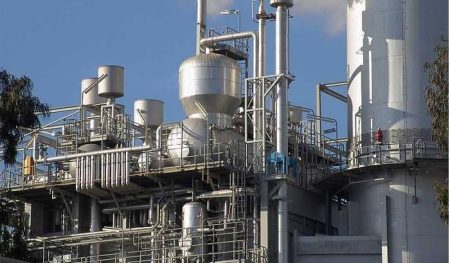…May lose capital base
…Price fall may wreck financial system, national economy, say analysts
Ike Amos 09 December 2014, Sweetcrude, Lagos – Analysts at Afrinvest have raised an alarm of an impending doom in the Nigerian financial system, saying that a number of banks in Nigeria are in danger of losing their capital base due to continued crude oil price decline.
In a report, titled, ‘Recalibrating Market Sentiment: Macro and market resilience,’ the analysts are of the view that “In light of the incessant decline in crude oil prices, we have reviewed the exposure of some Nigerian banks to the oil and gas sector as a proportion of the total loan portfolio and Shareholders’ Funds (SHF) as at Financial Year 2013.”

They pointed out that situation that led to the crisis in the banking sector in 2008 is currently prevalent in the sector and that if not arrested immediately, is capable of wrecking the financial sector and the economy in general.
Particularly, they disclosed that Sterling Bank Plc, with the highest ratio of oil sector loans versus total loan portfolio, is more at risk than all the banks combined.
The analysts said, “Looking back, the 2008 banking crisis can be linked to the sharp decline in oil prices, resulting in the sudden accumulation of huge toxic assets, which wiped out banks’ capital.
“As observed in the ratio of oil sector loans versus total loan portfolio of the banks, some banks may have begun to tread that same path with huge exposure to the oil and gas sector relative to SHF.
“For instance, Sterling recorded the highest with loans to the oil and gas sector at 1.5 times to its shareholders’ fund. Crisis in the Oil and Gas space could easily wipe out its profit for the year and shareholders’ fund.
“The banks capacity to grow risk assets without a corresponding increase in contributory capital is limited. This is premised on the 100 per cent weighting applied to loans in the computation of Capital Adequacy ratio, CAR.”
Giving an analysis of the ratio of oil sector loans versus total loan portfolio, the analysts disclosed that Sterling Bank Plc recorded the highest with 31 per cent, followed by Guaranty Trust Bank Plc with 28.7 per cent, while Access Bank Plc recorded 28.3 per cent.
Furthermore, First Bank Nigeria Holdings recorded oil loans versus total loan portfolio ration of 28.3 per cent; Union Bank Nigeria — 27.6 per cent; Diamond Bank Plc — 21.8 per cent; First City Monument bank Plc — 20.8 per cent; Zenith Bank Plc — 15.5 per cent; Fidelity Bank Plc — 14.7 per cent and Stanbic IBTC bank Plc — 14.5 per cent.
Furthermore, giving a ratio of oil sector loans versus shareholders’ funds of the banks, Sterling Bank, according to the analysts, recorded 157.1 per cent; FBN Holdings — 131.7 per cent; Diamond Bank — 128.8 per cent; Access Bank — 93.9 per cent and Guaranty Trust Bank — 87.2 per cent.
Others are: First City Monument Bank — 65.1 per cent; Stanbic IBTC — 56.9 per cent; Fidelity Bank — 45.5 per cent; Zenith Bank — 38.4 per cent and Union Bank Nigeria — 31.8 per cent.
To avert a crisis situation in the financial sector, the analysts advised that the CBN base the maximum sector exposure of each bank to its shareholders’ fund, rather than total loan portfolio.
This, according to the analysts, will effectively shields banks’ capital in the event of any crisis in any of the sectors within the economy.
The analysts further stated that the Nigerian economy remains vulnerable to external shocks, due to the volatility in oil prices, due to its continued reliance on crude oil receipt for foreign exchange earnings.



